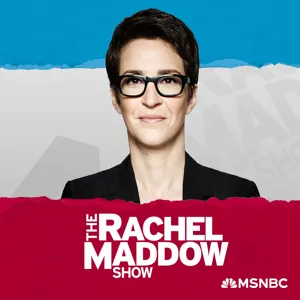Podcast Summary
Biden Administration Pushes for Potential TikTok Ban: The Biden administration is considering a bill that could lead to TikTok's removal from US app stores, leaving users uncertain about the future of the platform, particularly those who use it professionally.
The Biden administration is pushing for legislation that could potentially ban TikTok from US app stores if its Chinese parent company, ByteDance, doesn't sell the app to a non-foreign entity. This news has left many TikTok users, including those who use it for professional purposes, uncertain about the future of the platform. NPR's Jack Corbit, who creates content for the Planet Money TikTok account, shares his personal experience of falling in love with the app despite initial reservations. While Jack doesn't believe it will be banned, the potential outcome has significant implications for creators and users alike. NPR tech reporter Bobby Allen will join the show to discuss why lawmakers on both sides of the aisle support this bill and what it could mean for TikTok's future in the US.
Enbridge's shift to renewables and TikTok's scrutiny: Enbridge invests in renewables for a sustainable future while TikTok faces potential ban due to disinformation and geopolitical conflict concerns
Enbridge, a major energy company, is investing heavily in renewable energy and lower carbon solutions, demonstrating a commitment to a sustainable energy future. Meanwhile, in the tech world, TikTok continues to face scrutiny from lawmakers, with some considering a potential ban due to concerns over disinformation and content related to geopolitical conflicts. These issues have led to increased debate and attention on these platforms and their impact on society. For Enbridge, this investment in renewables and lower carbon solutions signifies a shift towards a more sustainable future. Certified Financial Planners, on the other hand, emphasize the importance of asking the right questions when it comes to personal finance, ensuring a secure financial future for individuals. In the case of TikTok, the platform's unique distinction as a potential target for a ban stems from concerns over disinformation and its potential influence on voters during election years. Additionally, there have been concerns about the balance of content related to geopolitical conflicts on the platform. These issues have led to heightened scrutiny and debate around the role and impact of social media platforms in society.
TikTok Faces Potential Ban or Forced Sale in US: The TikTok ban bill could lead to a ban from US app stores or a forced sale due to Chinese ownership and concerns over disinformation. However, the sale is uncertain due to Chinese government protection and skepticism towards big tech companies.
The TikTok ban bill, which denies TikTok's assertions of no spying or disinformation, was pushed through due to concerns over its Chinese ownership and the app's ability to mobilize users to contact lawmakers. This bill presents TikTok with two options: being banned from US app stores or undergoing a forced sale. However, the sale is uncertain due to the protective stance of the Chinese government over its technology and the ongoing skepticism towards big tech companies in Washington. The recent attempt by TikTok to rally its users to speak out against the bill may have backfired, as some lawmakers saw it as an uncomfortable intrusion. Despite speculation about potential buyers, ByteDance is unlikely to sell TikTok, making the outcome of this situation uncertain.
Potential ban of TikTok in US could impact $24B US economy: A ban on TikTok could negatively impact the US economy, particularly creators who found success on the platform, totaling $24B in 2021.
TikTok's potential ban in the US could have significant economic consequences. The Chinese social media app contributed approximately $24 billion to the US economy last year, and a large portion of this can be attributed to creators like Maddie Park, who found success on the platform. However, efforts to address national security concerns, such as Project Texas, have not been effective in practice, leaving TikTok on the defensive. Despite having alternatives like YouTube and Instagram Reels, creators like Maddie find that the vibe and engagement on TikTok are unique, making a ban a potentially detrimental move.
Impact of social media algorithms on user experience and public perception: TikTok's algorithm effectively shows users content they're interested in, leading to positive user response, while YouTube's algorithm promotes hateful content, causing negative reactions. The effectiveness of these algorithms is a significant reason for their user engagement and a concern for lawmakers.
The algorithms of different social media platforms, such as TikTok and YouTube, significantly impact the user experience and public perception of content. TikTok's algorithm has been praised for effectively showing users content they are interested in, leading to a positive response from its user base, primarily women. In contrast, YouTube's algorithm has been criticized for promoting hateful content, resulting in a negative reaction from users, mainly men. If TikTok were to be banned from app stores, its eventual decline would be a gradual process, with the app becoming increasingly glitchy over time. The effectiveness of these algorithms is a major reason why millions of Americans are engaged with TikTok and a cause for concern for lawmakers. This episode was produced by Corey Bridges, engineered by James Willis, fact-checked by CR Juarez, and edited by Kate. Sponsored messages were from Mint Mobile and REI Coop.






